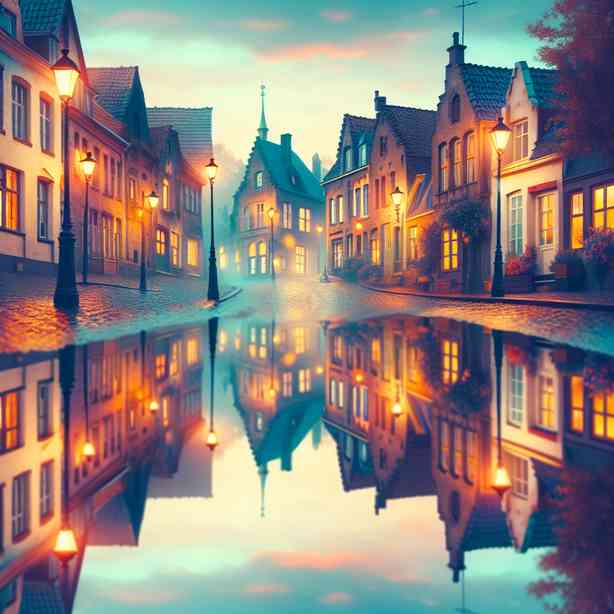
In the realm of human experience, there exists a curious phenomenon often referred to as déjà vu. This term, derived from French meaning “already seen,” encapsulates the perplexing sensation individuals feel when they encounter a new situation that they are convinced they have experienced before. Such moments can be both fascinating and disconcerting, leading us to question the workings of our memory, consciousness, and the deeper layers of our perception.
Déjà vu typically occurs suddenly, often lasting only a few seconds, yet its impact can be profound. Imagine walking into a café you’ve never visited, only to be overwhelmed by the sensation that you have been in that very spot before. The way the light filters through the windows, the arrangement of the furniture, even the scent of freshly brewed coffee can trigger a familiar sense of nostalgia. It can leave one wondering about the pathways of memory and the intricate connections woven into our subconscious.
Researchers have long been intrigued by this phenomenon, attempting to unravel the mysteries behind it. One popular theory suggests that déjà vu arises from a temporary glitch in our brain’s memory processing systems. In our daily lives, as we encounter various stimuli, our brain stores these experiences in different forms—some as explicit memories and others as implicit cues. There may be moments when the brain mistakenly perceives a current experience as a recall of a past event, leading to the feeling of familiarity. This theory aligns with our understanding of how the brain categorizes memories, highlighting its complexity.
Furthermore, the phenomenon has been linked to the temporal lobe of the brain, an area associated with memory formation and retrieval. Studies using brain imaging techniques have shown that during episodes of déjà vu, specific neural pathways in the temporal lobe become activated. This suggests that the feeling of familiarity may be a result of inadvertent miscommunication within the brain’s memory networks, allowing us to relive experiences that exist only in the realm of thought.
Interestingly, déjà vu is not restricted to mere recollections of mundane activities. It can occur in profound moments that elicit emotional responses, such as witnessing a significant life event or reuniting with someone after a long separation. In these instances, the sensations embodied in déjà vu can amplify feelings of connection and reflection, inviting us to contemplate the nature of our experiences.
Moreover, the cultural implications of déjà vu cannot be overlooked. In some societies, this sensation is seen as a spiritual or mystical occurrence, often interpreted as a sign of fate or a glimpse into past lives. Individuals may share stories about instances of déjà vu that have profoundly influenced their decisions or perspectives. Their anecdotes contribute to a rich tapestry of cultural narratives surrounding human experience, suggesting that déjà vu transcends science and enters the realm of the philosophical.
As we navigate through life, the occurrence of déjà vu can serve as a poignant reminder of the complexity of our minds and the intricacies of our emotional landscapes. It urges us to acknowledge the blurred boundaries between past and present, reality and illusion, as well as the multitude of perspectives we hold simultaneously. Each experience of déjà vu invites us on a journey of introspection and curiosity, inspiring us to delve further into the essence of our consciousness.
In conclusion, the sensation of déjà vu encompasses far more than a fleeting feeling of familiarity. It opens a portal to a deeper understanding of how we perceive reality, memory, and personal experiences. Whether rooted in neurological phenomena or intertwined with spiritual beliefs, déjà vu captures the imagination and challenges our understanding of existence. As we continue to explore the nuances of our thoughts and experiences, moments of déjà vu serve as a beautiful reminder of the complexity and depth of human consciousness, urging us to embrace both the known and the mysterious aspects of our lives.


